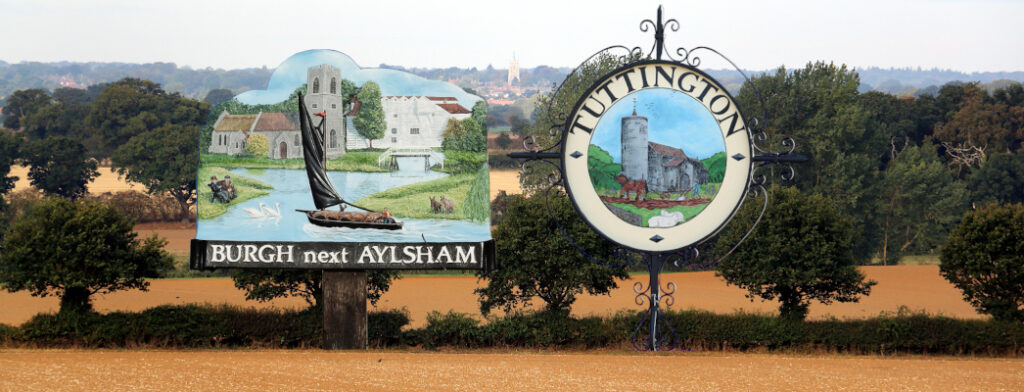The planning process is one area in which residents can either become directly involved, or become concerned about. Here is an explanation of how planning applications are dealt with, and who can get involved.
Follow this link to see a list of current planning applications in and around our parish
How planning applications are decided
Planning applications received by the district council (in our case Broadland and South Norfolk) pass through a series of steps before a decision to approve or refuse is made. District Council planning officers can make a decision themselves under what are known as delegated powers. More complicated proposals pass to the planning committee of elected district Councillors to decide. Also, in certain circumstances, an application can be “called in” by a district Councillor to the planning committee for consideration.
The public are able to submit comments on planning applications under consideration. Certain organisations called statutory consultees are asked to give their opinion on the merits or otherwise of an application. Their points are then considered by the District planners or Councillors who make the final decision.
The Parish Council is one such statutory consultee for planning applications submitted from their parish, or sometimes from adjacent parishes. Parish councils can provide local context to an application. However, points made by Parish Councillors must be restricted to planning criteria – called material considerations.
The basic assumption is that a planning application should be approved unless the material considerations indicate otherwise.
Parish councils might recommend approval or refusal of a planning application but the weight this carries at the district council will depend upon many factors. Often it is recommendations for amendments to planning applications by parish councils which can be particularly useful.
Members of the public can individually, or as a group of residents, comment on a planning application and give support or opposition to it. Again, points raised by the public are considered by Planners in relation to planning material considerations, to local or neighbourhood plans, or to wider regional plans and policy.
The Burgh and Tuttington Parish Council discuss local planning applications either at regular Parish Council meetings or at a specially convened planning meeting. The public can attend these meetings and there will be an opportunity for all to speak.
Download this document and find out what Material Considerations can and cannot be used to support or oppose a planning application.
Follow this link to our District Council Planning department, to find out how to make a planning application, how to look at other planning applications and comment on them.
Neighbourhood plan
The Burgh and Tuttington Parish Council have on, several occasions, considered the matter of developing a Neighbourhood Plan. They have decided that this would not be appropriate for our Parish at the present time, but the matter will be considered again from time to time if circumstances change. You can read more about Neigbourhood Plans here. Also, have a look at Aylsham Town Council’s Neighbourhood Plan.
Wider planning matters
Planning applications and developments in adjacent parishes can affect us here and the Parish Council regularly looks at these to ensure our parish maintains awareness of wider events.
Regional policy on housing and infrastructure development on a larger scale is also important to us and on which we are consulted. More details about this can be seen by following this link: Beyond our Parish.
